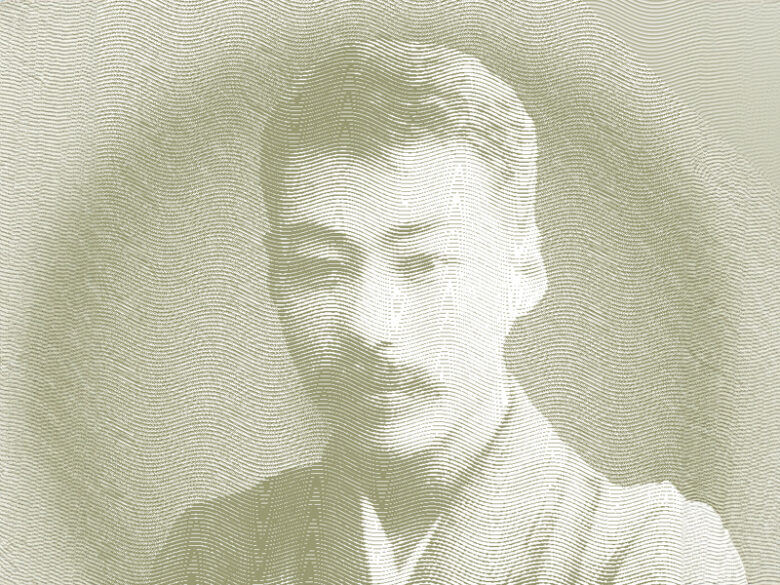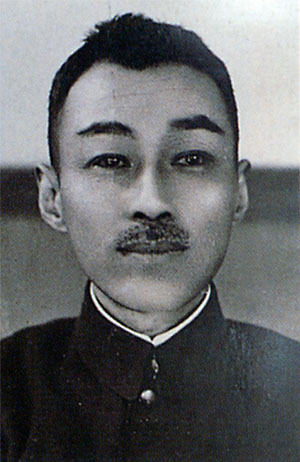A Monument of Children’s Songs Born from Overcoming Hardships
NOGUCHI Ujyou is one of Japan’s leading children’s song poets, along with KITAHARA Hakushuu and SAIJYOU Yaso and is hailed as one of the “Three Great Poets of Children’s Songs.”
Born in 1882 (Meiji 15) in Kitaibaraki City, Ibaraki Prefecture, as the eldest son of a prominent family running a shipping business, NOGUCHI developed an affinity for poetry and song from his student days. However, in 1904 (Meiji 37), after his father’s business failure and death, he inherited the family estate and entered into a strategic marriage with the daughter of a wealthy family to prevent the family’s downfall. He struggled to adapt to the constrained family life and repeatedly ran away and returned home. He experienced many hardships, including the failure of his own planned business ventures, conflicts with employers leading to dismissal, and divorce.
Despite his harsh circumstances, he never gave up his passion for poetry and song. After remarrying, he resumed his creative activities in 1918 (Taishou 7). From then on, he produced countless masterpieces such as “Juugoya Otsukisan,” “Nanatsu no Ko,” “Aoi Me no Ningyou,” “Shabon dama,” “Kogane Mushi,” “Ano Machi Kono Machi,” “Amefuri Otsukisan,” “Shoujouji no Tanuki Bayashi,” and “Tawara wa Gorogoro.”
Heartwarming Works from the Perspective of Children
For NOGUCHI, poetry was “the music of words.” His poems, written in gentle language that even young children could understand, reflect his wish to nurture warm hearts. Common to his works is NOGUCHI Ujyou’s unique perspective of finding deep meaning and beauty in the everyday scenes and events. Despite their simple and approachable language, his poems contain universal messages that deeply resonate with listeners.
NOGUCHI, who traveled to Manchuria, Korea, and Taiwan to give lectures to promote children’s songs, wrote:
Children’s songs must guide the spiritual life of children and help them grow into well-rounded individuals.
Children’s songs must be interesting to children, and at the same time, when adults listen to or sing these songs, they should recall their forgotten childhood memories. Such children’s songs are artistic works. NOGUCHI’s gentle works have the power to evoke the long-forgotten sensibilities of childhood not only in children but also in the parent generation. For this reason, they continue to be loved across generations and are cherished as part of Japan’s cultural heritage.
The Extraordinary in the Ordinary
While KITAHARA Hakushuu is known for his refined aesthetic sense and SAIJYOU Yaso for his intellectual and lyrical style, NOGUCHI Ujyou is characterized by his homely and warm style. This uniqueness makes him one of the “Three Great Poets of Children’s Songs.”
NOGUCHI’s creative activities are deeply rooted in his tumultuous life experiences. His experience of family downfall in his childhood, his wandering life in his youth, and his close association with the lives of ordinary people give his works a unique depth and warmth. At the same time, the influence of the “Taishou Democracy” of that era cannot be overlooked. The life bound by tradition in his hometown and the atmosphere of freedom and individuality he tasted in the city coexisted in NOGUCHI, who repeatedly ran away and returned home. While these contradictory feelings are not visible in his lyrics, this is what makes NOGUCHI a poet who still resonates with modern audiences.
His extraordinary talent within the ordinary, leaving the interpretation of his lyrics to the listener’s discretion, may be what defines the value of NOGUCHI Ujyou as a poet.

Itasan – 原版の投稿者自身による著作物 (Original text: Itasan’s file), CC 表示 3.0, リンクによる




コメント